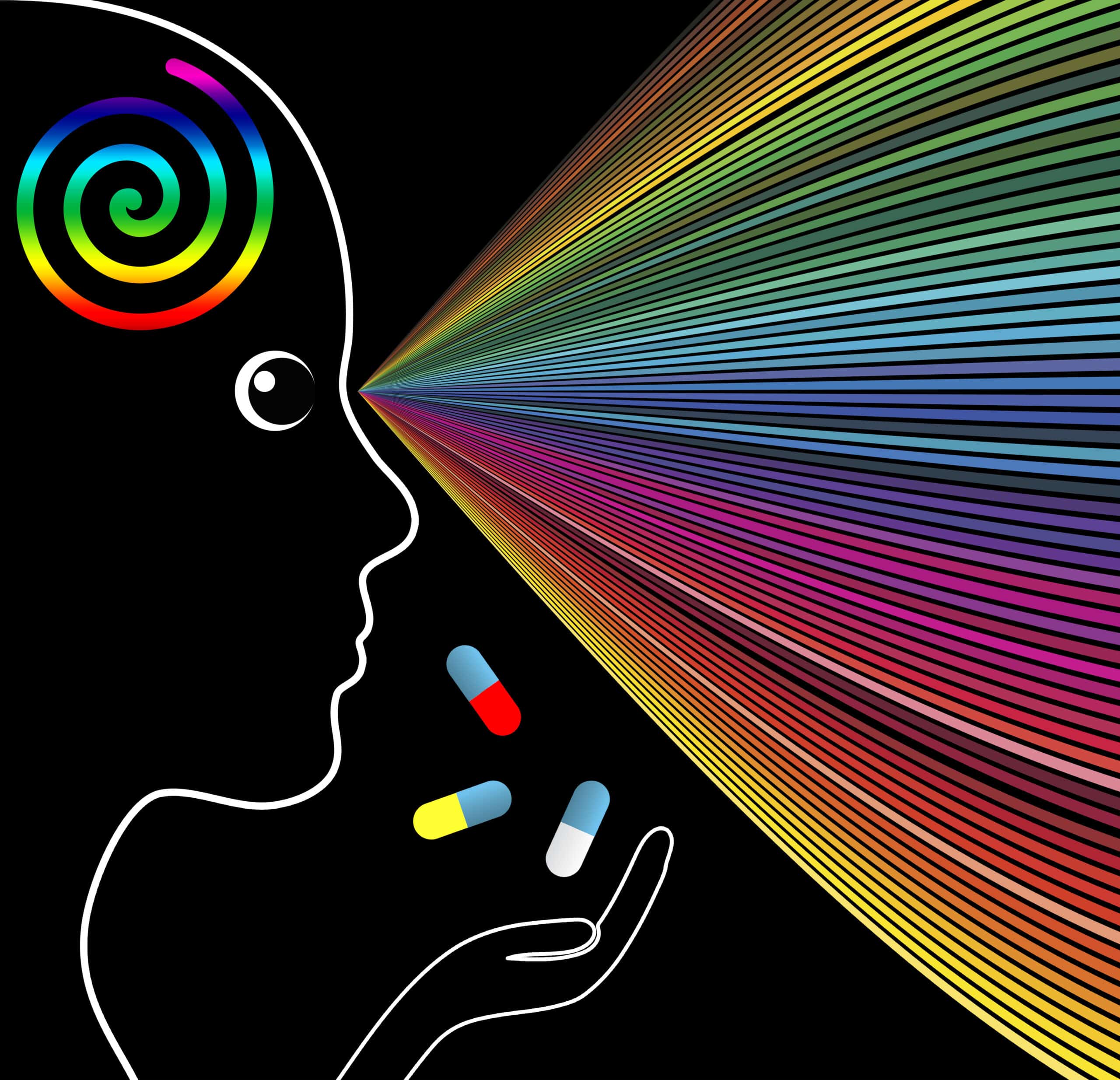Traditionally psychedelics drugs are thought of as relics from hippie generations or taken by music festival and rave goers, but one day soon such drugs may be used to treat mental health disorders ranging from PTSD to social anxiety and depression according to research presented at the annual convention of the American Psychological Association.
Some psychedelic drugs such as psilocybin, ayahuasca, and MDMA, when combined with psychotherapy may improve symptoms of post traumatic stress disorder, anxiety, and depression. Much more discussion and research is required to understand possible benefits of such drugs and psychologists can help to navigate related ethical, cultural, and clinical issues.
Many studies have investigated hallucinogens since the 1940s for potential benefits since discovery of LSD, research has been mostly stalled since outlaw in the late 1960s. More recently MDMA is beginning its third and final phase of clinical trials in effort to gain FDA approval for treatment of PTSD.
Symptoms of social anxiety in autistic adults is suggested by one study to be treatable with combination of MDMA and psychotherapy; as 12 autistic adults with moderate to severe social anxiety given 2 treatments showed significant long lasting decreases in symptoms.
LSD/psilocybin and ayahuasca has been explored in benefits of treatment for patients suffering with eating disorders, anxiety and depression. 158 participants reporting past use of hallucinogens, relationship with feelings, and level of spirituality were found to have greater levels leading to improved emotional stability and fewer symptoms of depression, disorder eating, and anxiety. Another study suggested ayahuasca may help to alleviate depression in addicts, assist in coping with trauma, increase generosity, altruism, and spiritual connections.
An additional study suggests that psilocybin was help patients suffering with life threatening cancer with significant and lasting reductions in distress and anxiety, wherein 13 patients grappling with loss and existential distress given psilocybin combined with psychotherapy were helped to reconcile feelings about death and made spiritual or religious interpretations of their experiences with the therapy to help facilitate a reconnections to life, greater presence and mindfulness, and more confidence when faced with recurrence of cancer.
Throughout the symposium presenters discussed need for additional research to gain better understandings of the implications of using such psychedelics as an adjunct to psychotherapy as well as legal and ethical issues needing to be considered, and reinforcement for the need of the psychological field to consider larger roles for spirituality in context of mainstreaming treatment as spiritual growth and connection to something greater than self can be fostered and built on.




